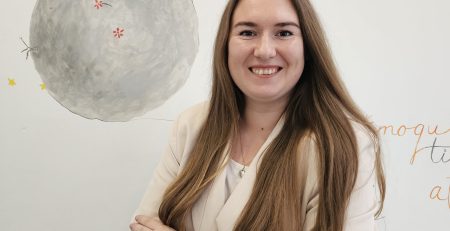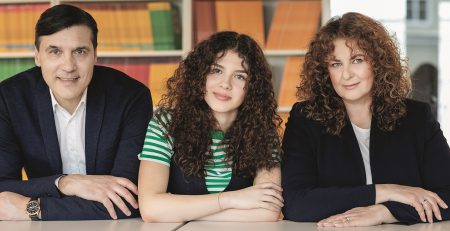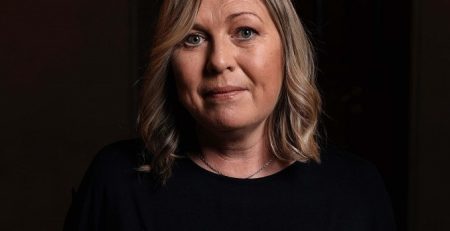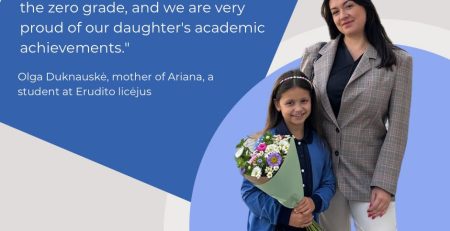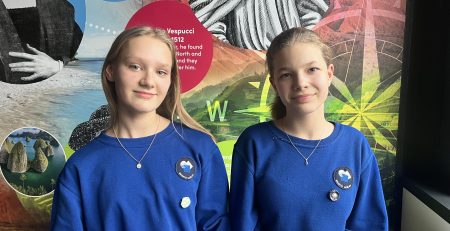Languages Coordinator Deividas Marušauskas: The level of English at Erudito Licėjus is exceptionally high – the majority of 10th graders are already at B2+ level
Deividas Marušauskas, who has been working as a foreign language programs coordinator, andragogist, and educator for four years at Kaunas Erudito Licėjus, insists: teaching languages is a meaningful calling for him and has become the way of life. “On Sundays, I’m already looking forward to Mondays”, says the teacher. Teaching English to the main classes of students, D. Marušauskas talks about English language teaching at Erudito Licėjus and explains why the English language level here is exceptionally high.
You earned a bachelor’s degree and English teacher qualification at Vilnius Pedagogical University and have been teaching general and professional English to students of various ages for more than twenty years. How did you decide to become a teacher? When did you feel called to work as a teacher?
As soon as I stood in front of children for the first time (smiles). It seems like it was twenty-five years ago… Later, I worked as an andragogist for a while and taught language to adults privately, but I missed that childishness, the challenges associated with children’s age groups. It’s easy with adults – but with children, you need to constantly persuade, motivate… Their motivation fluctuates, so you need to establish a connection with the child, tame them, nurture them.
You hold the belief that in the classroom, you don’t teach a particular class but rather individual students with their own abilities and talents, so they must be taught accordingly. You try to adapt teaching style and material to the student’s personality type, abilities, and goals. Individualized education is not always easy, especially when you have twenty students in a class, and you need to establish a connection with each one…
I want to be the kind of teacher my literature teacher was to me. She said, “Deividas, you will achieve a lot because you are curious, you ask questions, you discuss.” That shaped me or, figuratively speaking, gave me wings. I always encourage students to ask questions; I always thank them for a question, even for mistakes, because mistakes provide an opportunity to discuss, to cultivate critical thinking. I never tell a child that they are wrong or that they made a mistake – I ask how they came to such a conclusion, how they found such an answer. Sometimes, in explaining, they realize their mistake themselves. I aim to cultivate personalities that think, argue, are not afraid to make mistakes, are creative, and free. It’s not easy to cultivate such personalities; there is a lot of tension because we want to lead the child to the path of independence, responsibility, understanding, creativity, and to develop a well-rounded personality. In this sense, working in school is very difficult – cultivating personalities is truly not easy, but it’s very interesting.
Moving on to teaching, when teaching according to the curriculum, I try to teach tasks at a level higher than required by the course. So, teaching at the B2 level, I actually prepare them for B2+ or even C1. With vocabulary, it’s a bit harder – students don’t like learning new words, so I’m always looking for ways to enrich their vocabulary – not just YouTube or street slang, but so that new interesting words enter active usage. It’s very important to me that every student in the class improves, that they become a better version of themselves every day. I apply the same requirements to myself: I study every day, both academically and in human terms.
You claim that English language teaching at Erudito Licėjus is different. Tell us how you teach children English, what methodology do you use?
Students learn rules and correct language usage not by memorizing rules but through language usage. Simply put, students learn language by speaking it. However, there is another side to this coin: sometimes, children “pick up” incorrect language, so the teacher has to make efforts to form correct language skills.





